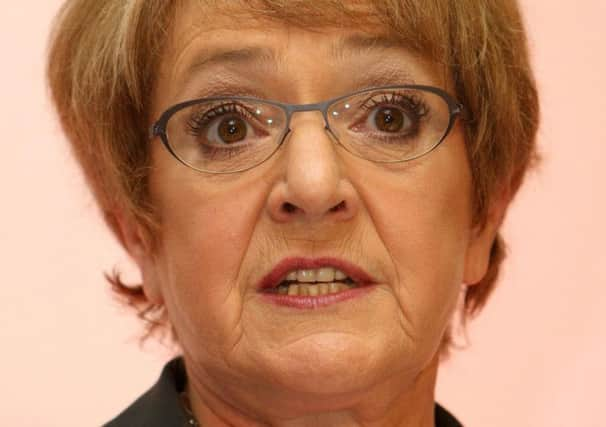MPs criticise Government over ‘millions wasted’ through private providers in higher education


The powerful Public Accounts Committee (PAC) said the lax approach of the Department for Business Innovation and Skills (BIS) had allowed £3.84 million of public money to be given to ineligible EU students in fee loans and grants.
It also warns that the Government does not know how much money has been lost when it has funded students “who have failed to attend, or failed to complete courses, or were not proficient in the English language, or were not entered for qualifications.”
Advertisement
Hide AdAdvertisement
Hide AdThe PAC said evidence from whistle-blowers suggested that some providers did not test students’ ability to speak English and that some institutions were recruiting students straight off the streets.
The PAC’s chairman Margaret Hodge said BIS had ignored warnings about the dangers of expanding the number of alternative private providers without regulations in place.
She also said the department had been slow to tighten up some of its procedures to “control public expenditure more effectively.”
“The Department pressed ahead with the expansion of the alternative provider sector without sufficient regulation in place to protect public money”, she said.
Advertisement
Hide AdAdvertisement
Hide AdThere are now around 140 alternative providers offering higher education ranging from private companies to charities. The government opened up the higher education sector to for-profit companies as part of the higher education reforms which saw tuition fees rise to up to £9,000-a-year.
The alternative private providers do not receive government grants directly but do access public funding through student loans which are used to pay their fees.
Following a major overhaul of the system in 2011, there has been massive growth in this sector, the cross-party group of MPs said.
Between 2010/11 and 2013/14 the number of students claiming funds for courses at one of these colleges rose from 7,000 to 53,000, while the amount of taxpayers’ money paid to students at these providers through loans and grants rose from around £50 million to around £675 million.
Advertisement
Hide AdAdvertisement
Hide AdThe report says that the Government pressed ahead with this expansion without strong legislative backing in place to protect public funds.
Mrs Hodge said: “The Department took over a year to tighten up some of its procedures to control public expenditure more effectively. It has also failed to protect the interests of legitimate students, the taxpayer and the reputation of those alternative providers who may be performing well.
Ms Hodge also said that even though the expansion was intended to widen access for students in England, 40 per cent of funded students attending these colleges were from the EU, compared with six per cent in the rest of the higher education sector.
A Business Department spokesman said: “Alternative providers play a significant role in widening access to higher education for British and foreign students, as well as boosting our exports.
Advertisement
Hide AdAdvertisement
Hide Ad“Our priority is to protect the interest of students and safeguard taxpayers’ money. We have made continuous improvements to the management of alternative providers since 2012. We recently introduced reforms to drive up quality, aimed at the small number of providers who are not currently meeting our high standards. These include a fit and proper persons test for directors and a requirement to register students for the course before they can access funding.
“We are also shortly consulting on how to ensure that all students on funded courses have the right English language skills to achieve their qualifications.”
Sally Hunt, general secretary of the University and College Union, said: ‘Members of the Public Accounts Committee were as shocked as we were over the Government’s refusal to heed our warnings about private providers’ access to taxpayers’ money.
“The Government still has serious questions to answer about why it ignored these repeated warnings and why it allowed such rapid expansion to go unchecked.”
Advertisement
Hide AdAdvertisement
Hide AdProfessor Aldwyn Cooper, chairman of the Independent Universities Group, said there were many alternative providers offering “first rate” higher education.
“The members of the Independent Universities Group (IUG) have undergone stringent quality reviews in order to gain their own degree awarding powers and provide excellent student outcomes.
“These institutions offer first rate value for money, employability and student experience. They receive no direct funding from government and are careful to ensure that they are fully compliant with the expectations of the department and the Student Loans Company.”
Shadow universities minister Liam Byrne said: “These findings show the staggering way the Tory-led Government has wasted hundreds of millions of pounds of taxpayers’ money, handed over to private providers without proper safeguards or controls.”